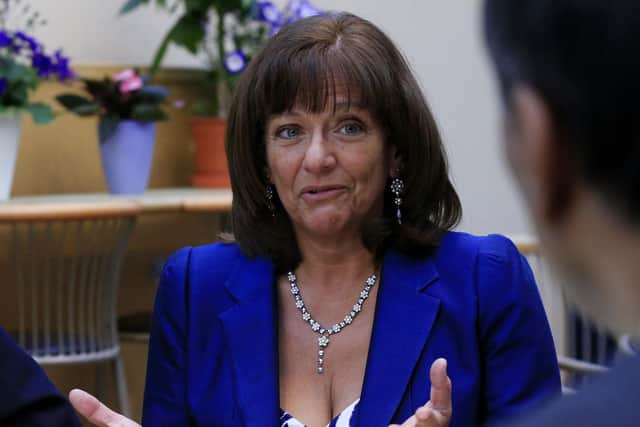Pensioners must not be abandoned in the midst of the cost of living crisis - Ros Altmann
Pensioner protection is a political choice about spending priorities. It is also a matter of morality and social responsibility. Our welfare state is based on people working and contributing to society for most of their lives, with their contributions assuring them of a basic pension – not a fortune, but enough to enable them to afford essential bills in exchange, when they are too old to continue.
There are some well-off pensioners but millions rely on the old Basic State Pension of under £9,000 a year.
Advertisement
Hide AdAdvertisement
Hide AdWe probably all know many pensioners with decent incomes or other assets to supplement their state pension. But millions of today’s pensioners – including large numbers of women – had no chance to build private pensions when they were younger. They are totally dependent on the national insurance State Pension, to which they have often contributed for decades.


The old Basic State Pension, even after a 10.1 per cent rise this year, is just over £8,000 a year – not many people could live decently on this for the rest of their lives.
Pensioners cannot earn more in the future to make up for low incomes now. Older generations have been assured, by successive Prime Ministers and opposition parties, that their small state pensions will be protected. They can’t go out and earn more, many of them have little else to live on.
Even after the latest increase, the Basic State Pension, which is paid to pensioners in their 70s and beyond, is only around £8,000 a year. Younger pensioners who reached pension age since 2016, have a full new State Pension that is just over £10,000 a year. These payments are hardly a king’s ransom.
Advertisement
Hide AdAdvertisement
Hide AdThe ‘triple lock' is a powerful political trick, but it is not rational economic or social policy. The politics of the triple lock – which promises to raise State Pensions to the highest of earnings, price inflation, or 2.5 per cent - has been used as a totemic symbol of a political party’s commitment to millions of pensioners.
However, this is a political trick, which defies economic or social logic. There is no rationale for the 2.5 per cent figure and it is redundant now anyway as both prices and earnings are rising by far more.
The poorest, oldest pensioners are not properly protected by the triple lock which gives more to those under the age 72.
The complexity of State Pensions has allowed the Government to get away with applying the triple lock in a most unfair way. Instead of helping the poorest pensioners who live on Pension Credit which is not included in the triple lock promise, the under 72s, who reached State Pension Age after April 2016, have thousands of pounds a year more State Pension covered. This is because the triple lock only applies to two parts of the State Pension system – the full new State Pension (currently £10,600 a year) and just the old Basic State Pension (just over £8,000 a year).
Advertisement
Hide AdAdvertisement
Hide AdAll the additional pension elements (such as SERPS, S2P, Deferred Payments) and Pension Credit are excluded. Any rational policy would give the top level of protection to the oldest and poorest, but the triple lock does not do so.
Baroness Ros Altmann is a British life peer and former pensions minister.